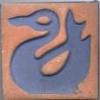
Thu, Mar-21-24, 21:12
|
 |
Senior Member
Posts: 1,948
|
|
Plan: Atkins-ish (hypoglycemia)
Stats: 000/000/000

BF:
Progress: 50%
|
|

I'm sure that some people who use Daiya are lactose intolerant, but most aged cheeses are very close to lactose free naturally. The milk is curdled and the whey (where most of the lactose is) will be drained off. Only the severely lactose intolerant would need a 100% lactose free cheese.
Quote:
|
Hard cheeses such as cheddar, colby, Swiss, mozzarella and Monterey Jack “are virtually lactose-free,” Cifelli explains. Additionally aged cheeses such as Parmigiano Reggiano are virtually lactose free. At less than 1 mg lactose per 100 grams even the Italian Ministry of Health allows it to be labeled as such.
|
(more info at the link on lactose intolerance, cheese, and yogurt)
https://www.cheeseprofessor.com/blo...lerance-cheeses
But it's also possible to be allergic to the milk itself:
Quote:
Milk allergy symptoms, which differ from person to person, occur a few minutes to a few hours after you or your child drinks milk or eats milk products.
Immediate signs and symptoms of milk allergy might include:
Hives
Wheezing
Itching or tingling feeling around the lips or mouth
Swelling of the lips, tongue or throat
Coughing or shortness of breath
Vomiting
Signs and symptoms that may take more time to develop include:
Loose stools or diarrhea, which may contain blood
Abdominal cramps
Runny nose
Watery eyes
Colic, in babies
Milk allergy or milk intolerance?
A true milk allergy differs from milk protein intolerance and lactose intolerance. Unlike milk allergy, intolerance doesn't involve the immune system. Milk intolerance requires different treatment from true milk allergy.
|
https://www.mayoclinic.org/diseases...es/syc-20375101


|